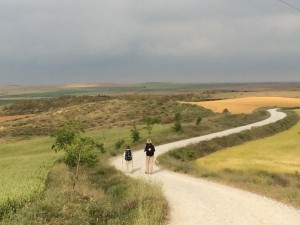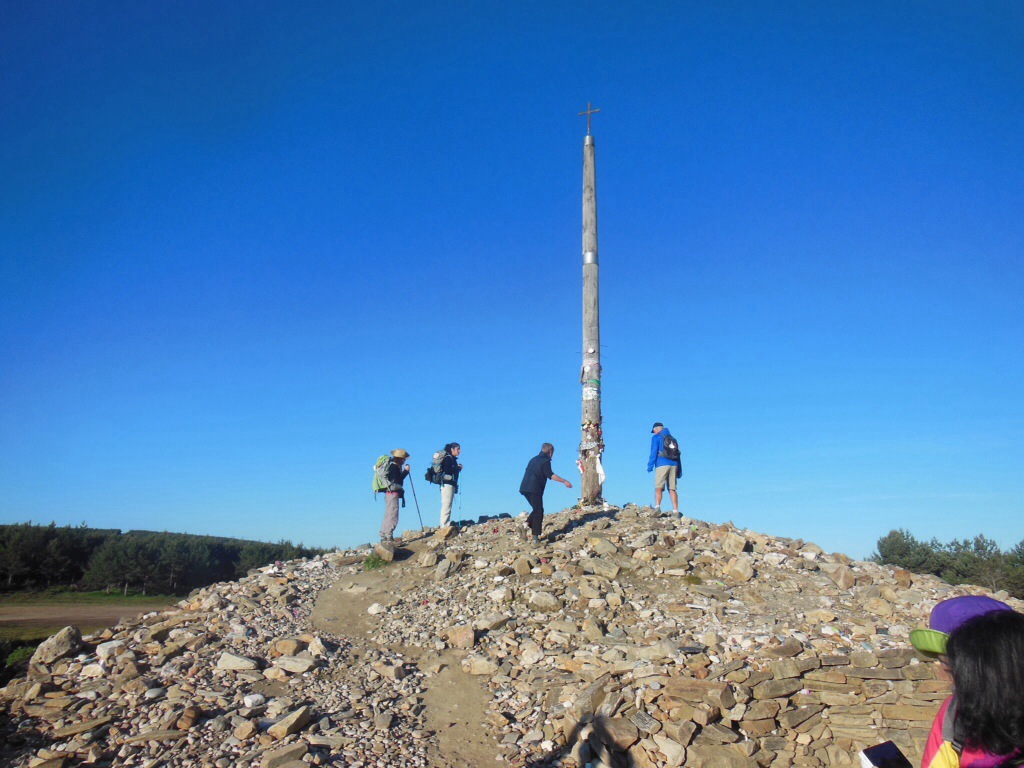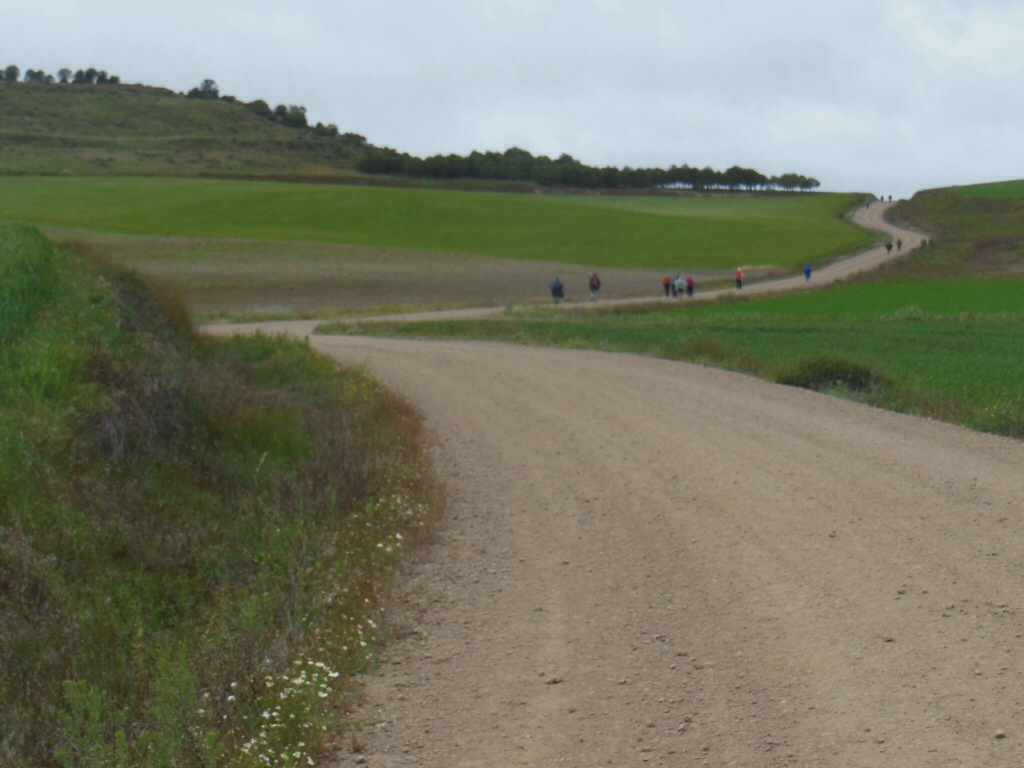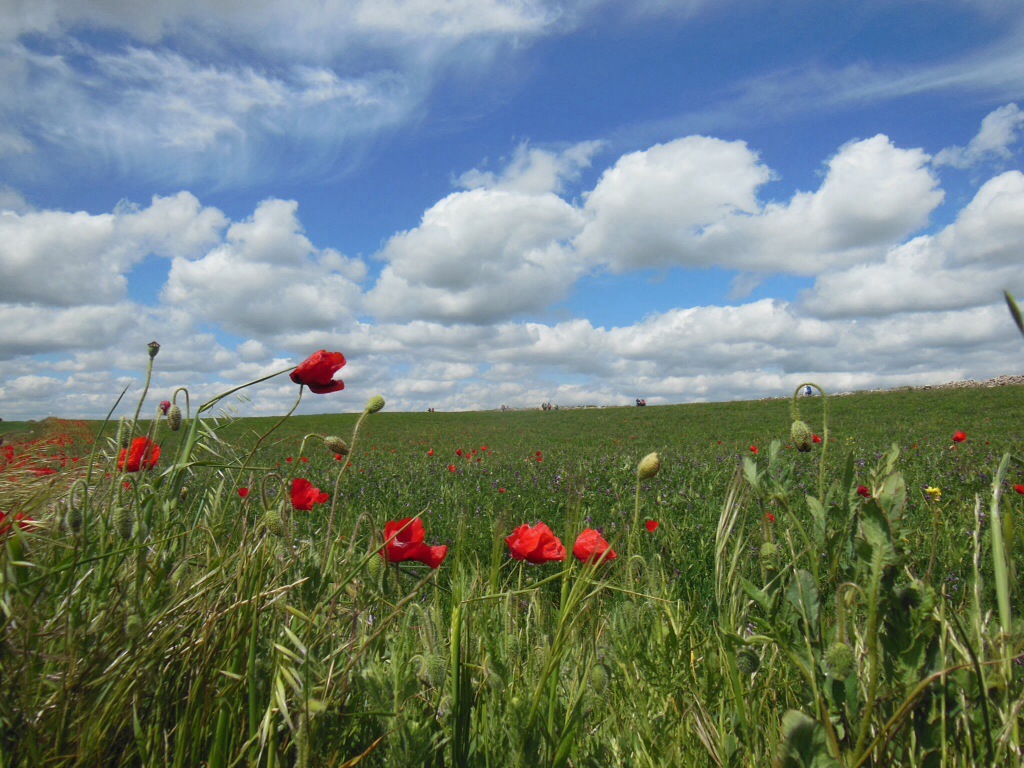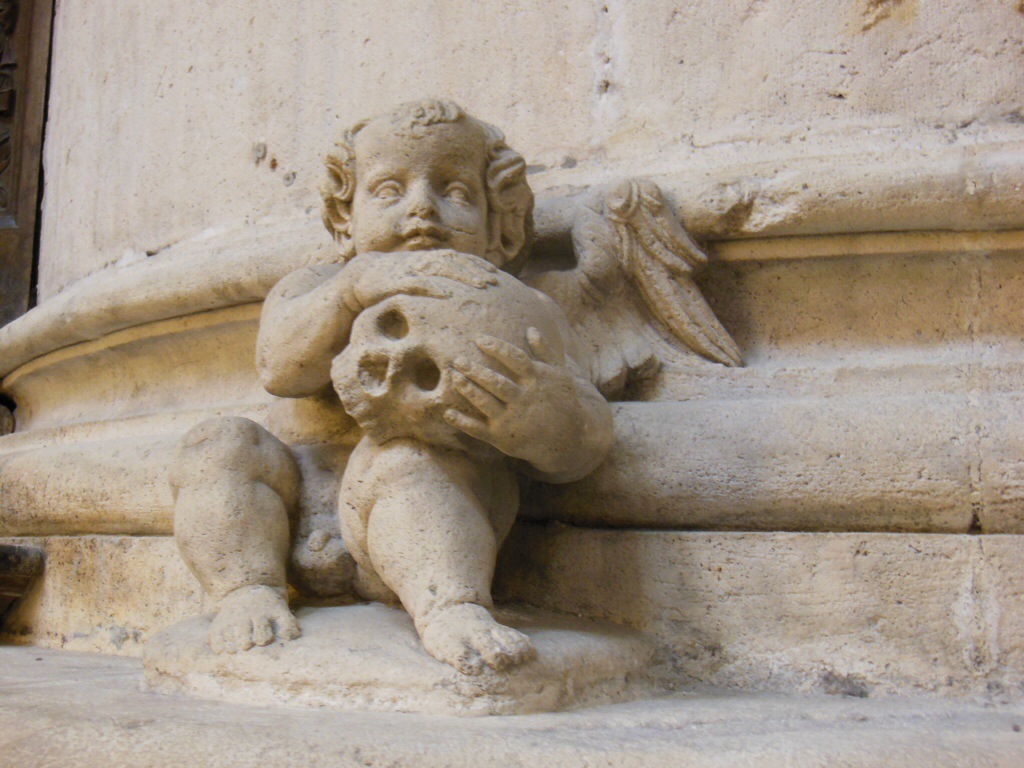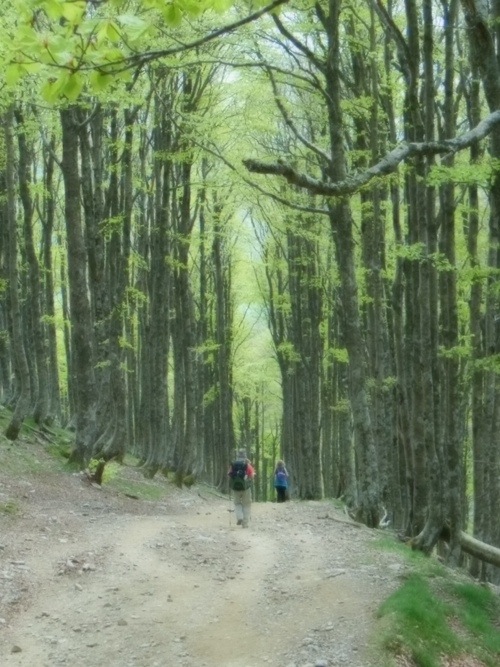Why walk 500 miles to Santiago de Compostela? I mentioned my struggle with this question to a very thoughtful friend, who said, “It used to be that to get to Compostela you had to walk to Compostela.” That’s clearly no longer true. In our modern world, with instant communication, almost-instant travel, and diversity of religious beliefs, walking to Santiago de Compostela is a choice. Most of us no longer believe that making pilgrimage to a saint’s tomb will give us a free pass to heaven, even if we think we need such a pass. We don’t believe that the relics in cathedrals, even if they are really from the true cross or the corpse of some long-dead holy person, confer any special mojo — any special forgiveness of sins. (Related question: what are sins?)
Indeed, there were moments on Jed’s and my recent pilgrimage when walking to Santiago seemed the opposite of holy. It seemed possibly cruel and probably a sign of mental illness to walk through pain. I have been wondering why we do it. Why I did it. Yet people who make this choice seem to benefit from their walk. Why?
Here’s my current hypothesis: We go on pilgrimage to practice dying, and because pilgrimage is really fun.
1. Pilgrimage as practice in dying: Pilgrimage, like any discipline, is practice in letting go of ego and expectations. It’s an expansion of our comfort zones in order to commit to what we truly value. Daily prayer or meditation, intentional service of others, eating a vegan diet, writing three pages every morning, whatever — discipline is learning how to do the hard stuff. God knows it seems easier to stay in life’s comfortable shallow end, trying our damndest to keep pain and fear at bay. For most of us, life will bring painful stuff — illness and death and loss in all its forms. C.S. Lewis said, “Die before you die. There is no chance after.” Pilgrimage is an opportunity to “die before you die,” to practice staying present to pain and fear, to practice letting go of control and expectations. When we stay present and open to pain and fear, we become more resilient and confident in our abilities to choose love in the midst of pain.
Pilgrimage allows us to do hard things in a relatively safe context — supported by ancient history and tradition, following directions and instructions that are millennia old, and in the company of others doing the same work.
2. Being a pilgrim is just plain fun. Even when I felt tired and sore, the Camino’s freedom and focus, hospitality, intellectual stimulation, companionship, rich social life, ample outside exercise, and incredible beauty were simply and juicily fun. I never stopped saying and thinking, “Honey, we’re in Spain. We’re in SPAIN!” The gift of being in the pilgrimage bubble, outside of normal time with its demands and constraints, was priceless. I felt at home in my body again — at one with my “god pod.”*
So, these are my answers for why modern pilgrims leave their homes to walk miles and miles: To practice doing hard things, and to have vast amounts of fun.
There’s a lot more to unpack, which I will be doing over the coming weeks on the blog now that my thinking is more coherent.
Thanks for walking with me. ¡Buen Camino!
Photo credit: Joe speetjens, a fellow peregrino from mississippi.
*”God Pod” coined by fellow martha beck coach susan hyatt

